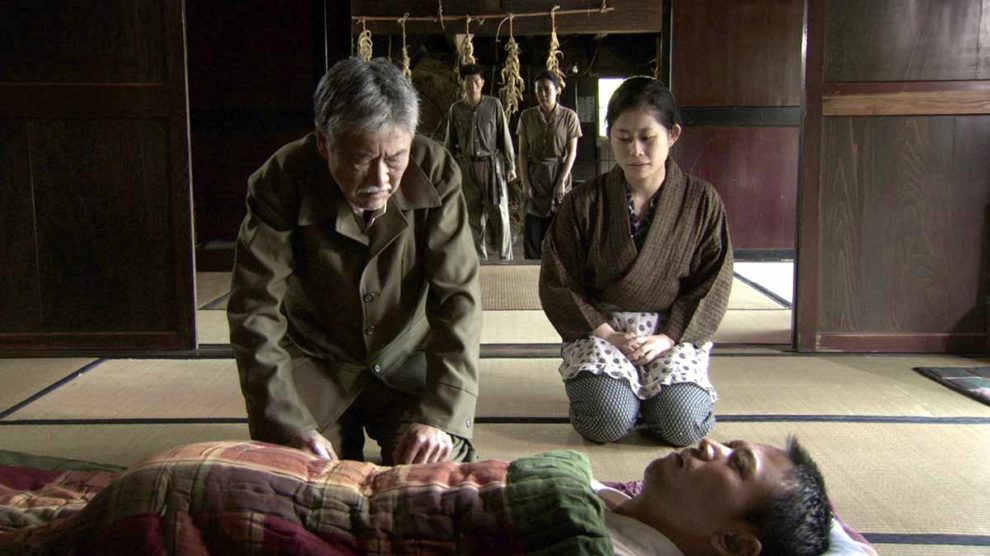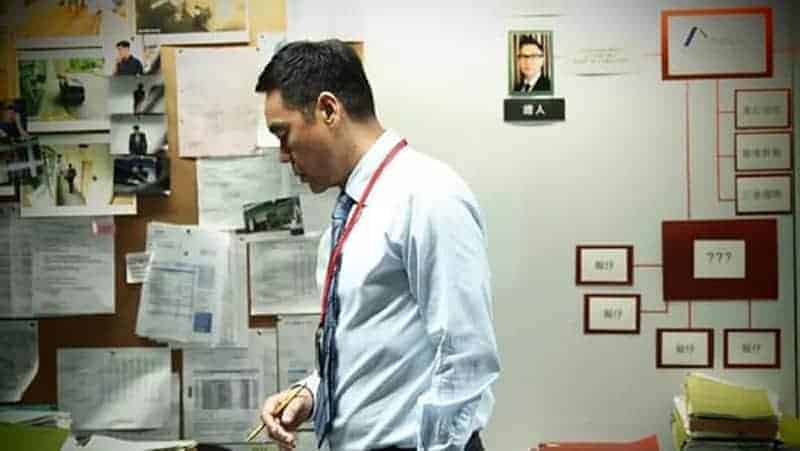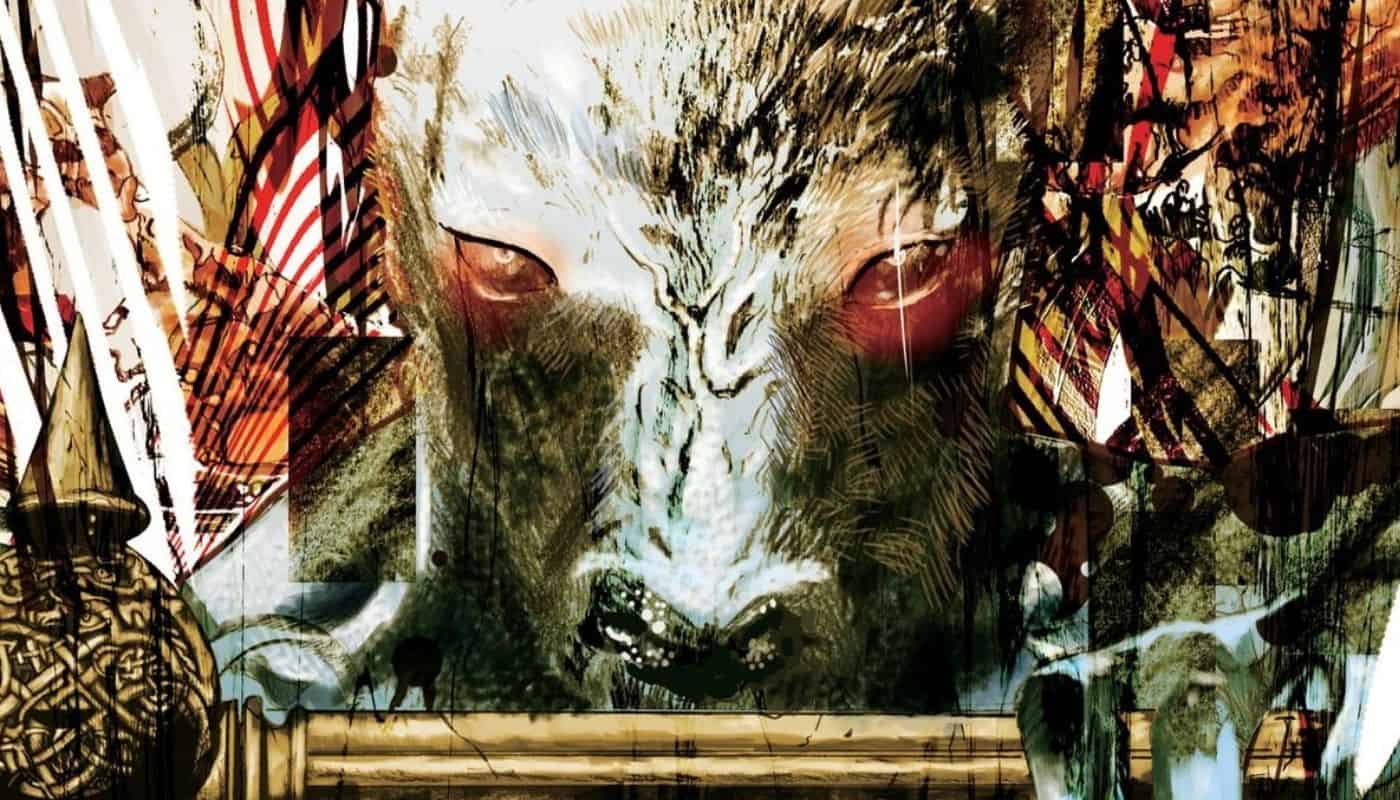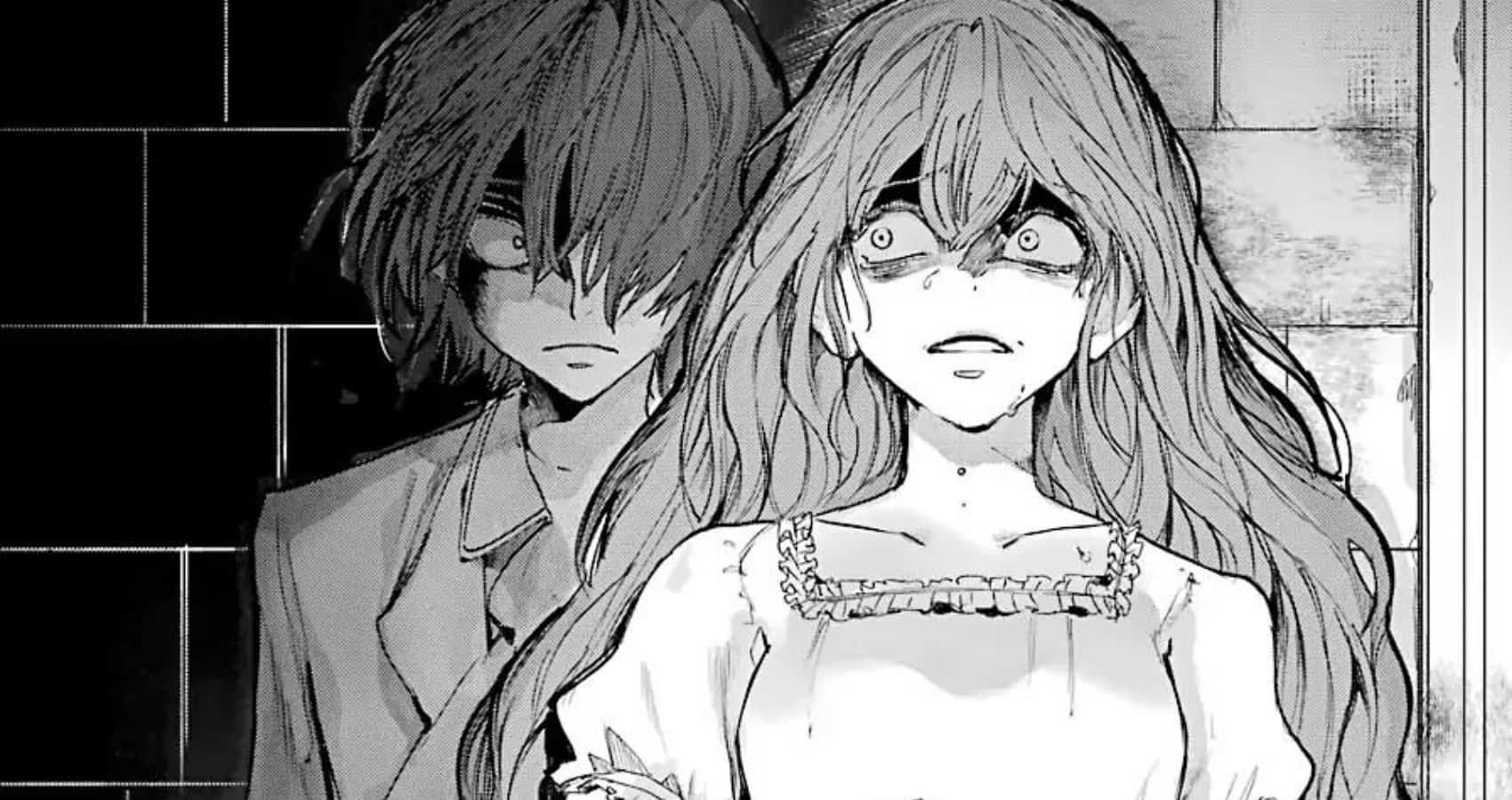It seems Wakamatsu held some of his best for last, since after the epic “United Red Army”, he came up with another great movie, two years before his death. “Caterpillar” was nominated for the Golden Bear at the 60th Berlin Film Festival, where Shinobu Terajima received the Silver Bear for Best Actress.

The script is partially based on the homonymous, banned, 1929 short-story by Edokawa Rampo and takes place in the end of 1930s, just before the Second Sino-Japanese war and the beginning of WW2. Lieutenant Kyuzo Kurokawa returns to his home village, completely limbless, with no hearing, and with extensive burns covering half the right side of his head. At the same time, he is highly decorated with three medals and carries the title of “God of War”. His relatives are all stupefied by his condition, but quite hypocritically, try to convince his wife, Shigeko, that it is a true honour taking care of a war hero, essentially leaving her to deal with the house, their crop, and her husband on her own. Gradually, she begins to overcome her shock as she starts to communicate with Kyuzo; however, she soon realizes that apart from all the aforementioned, she also has to satisfy her husband's constant sexual needs, which are essentially imposed on her by his desperate eagerness, but also from her sense of duty as a wife. The sole social interaction the couple participates in, is when Shigeko dresses him in his decorated uniform and essentially parades him in the village on the occasional ceremonies, supposedly to raise morale among the inhabitants, but also as a kind of punishment for his attitude, since it quickly becomes obvious that he hates this tendency. Things get even worse when his nightmares, and particularly his memories of his war crimes against the Chinese become more intense, while Shigeko gradually succumbs into a nervous breakdown.

Koji Wakamatsu directs a film that unfolds as a rather harsh critique of war, and everything that surrounds this concept, including the attitude of Japanese people, whose dedication to the emperor and the country is presented as a truly ridiculous concept, and them as victims of a set of rules and a sense of duty with no clue why they follow. That no one seems to react when, during WW2, a general conscription took every youth from the village, including those younger than 20 years and an old man who was already a veteran of the previous war, essentially leaving the community with no men apart from a local fool, Kyuzo, and his sick brother and only women to tend the fields, is a rather eloquent sample of their state of mind. Furthermore, and although Japan was suffering from consecutive defeats during the time, the radio bombarded the citizens with fake news about great wins, thus covering the truth in the most despicable way, in a another comment against the war practices of the country.
All the aforementioned hypocrisy and the consequences of war are mirrored in the most gruesome but also realistic way in Kyuzo, whose sole existence seems like an affront to him, his wife and humanity, with the title essentially highlighting what he has come to be: nothing more than an insect. At the same time, however, Wakamatsu does not miss the chance to show that even in this situation, the sexual instincts remain a driving force, as this is, essentially, what keeps Kyuzo alive. This concept also ridicules another sense of duty, that of the wife towards her husband, with the way Shigeko feels the need to indulge him even though she is clearly appalled by him and the attitude of both his family and the rest of the villagers, presenting the concept as equally ridiculous as the previous one. This comment also extends to the place of women in Japanese society, who are as low in the “food chain” as possible, with Wakamatsu showing that the war and essentially the government may have f*cked up Kyuzo completely but he still gets to f*ck his wife, who is beneath him in status even with his current situation. The flashbacks of their life before the war add even more to this comment.
Through all the aforementioned, Wakamatsu manages to retain a very thin and elaborate balance between social drama, satire, political commentary and erotic film, although his trademark effort to shock through sex and violence is rather evident. At the same time, the adaptation of Rampo's story to WW2 is impressively handled, in a way that makes the comments of the original even more pointy. In order to achieve this, and the overall Sisyphean atmosphere of despair, Wakamatsu drew impressive efforts from the two cinematographers, Yoshihisa Toda and Tomohiko Tsuji, whose work has captured the whole atmosphere in the most impressive way, with the framing in both the family's house and the exterior shots being rather memorable. Furthermore, the presentation of the era is quite realistic, with Hiromi Nozawa and Makie Miyamoto making an excellent job in art direction and costumes, respectively. Shuichi Kakesu's editing is an integral part of the narrative, with the pace of the film frequently mirroring the speed of a caterpillar (or Kyuzo if you prefer), in a rather ingenious approach to that aspect. Lastly, quite interesting is the way Wakamatsu and his crew handle the sex scenes, which manage to be equally appalling, artful, and perversely sensual, with the last part owing much to Shinobu Terajima's performance and appearance.
Terajima in general is astonishing in the role, managing to portray a plethora of emotions with the same realistic artfulness. Particularly the way she exhibits the obligation she feels towards her husband and the disgust for what she has to do for him is a wonder to look at. Shima Onishi as Kyuzo Kurokawa is also great, with him having to exhibit his frustration and anger only through his stare and his limbless body, in a truly shocking performance.
Wakamatsu shot the film in just 12 days (which is quite long for him actually) without any rehearsals and with each scene recorded in only one take. The result is a testament to his directorial abilities, in a film that goes beyond genre to emerge as a true masterpiece.















